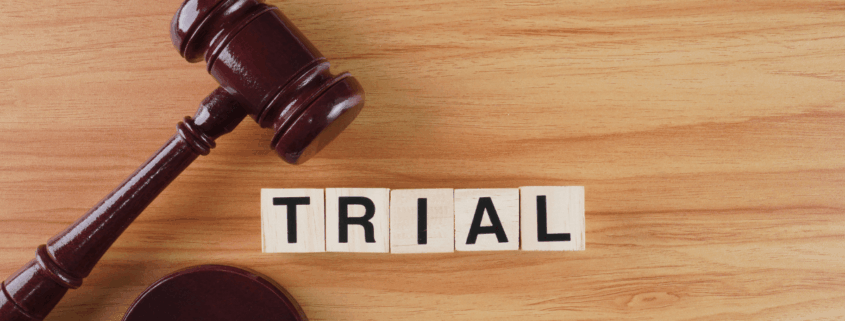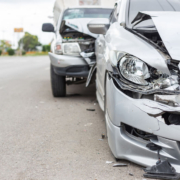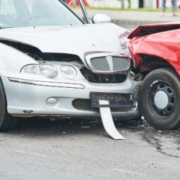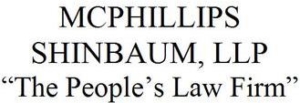The Role of Expert Witnesses in Alabama Car Crash Cases
After a serious car crash, the immediate aftermath is chaotic. The physical evidence—skid marks on the pavement, the position of the vehicles, the crumpled metal—offers clues, but it does not always tell the whole story. While eyewitnesses can describe what they saw, their perspectives can be limited or even contradictory. When the cause of a collision is not immediately obvious, or when the long-term consequences of an injury are difficult to measure, a car accident claim can become far more complex. This is when the analysis of a specialized professional, often referred to as an expert witness, becomes an important component of a case.
What Is the Distinction Between a Lay Witness and an Expert Witness?
In any legal proceeding, there are two primary categories of witnesses: lay witnesses and expert witnesses. A lay witness, such as a bystander who saw the collision, can only testify about facts they personally observed through their senses—what they saw, heard, or smelled. They can describe the cars, the weather, and the sequence of events as they perceive them.
An expert witness, on the other hand, is permitted to do something a lay witness cannot: offer a professional opinion. Based on their specialized knowledge, skill, experience, training, or education, an expert can analyze a set of facts and draw conclusions to help others make sense of complex information. For example, while a lay witness can say they saw a car swerving, an automotive engineer acting as an expert witness can analyze the wreckage and offer a professional opinion on whether a mechanical failure caused the swerving.
Why Are Expert Witnesses So Important in Car Accident Claims?
The testimony and reports from expert witnesses serve several key functions in a car accident claim. Insurance companies often dispute liability or downplay the severity of injuries to minimize what they have to pay. An expert’s objective findings can effectively counter these tactics.
Here are some of the main reasons their involvement is so valuable:
- Explaining Complex Evidence: Experts can translate highly technical information into clear, accessible terms. A forensic toxicologist can explain the effects of a certain blood alcohol level on a driver’s reaction time, or a biomechanical engineer can describe how the force of an impact would lead to a specific type of spinal injury.
- Establishing Causation: Proving that the other driver’s actions directly caused your injuries is a fundamental requirement of any personal injury claim. An accident reconstructionist can link a driver’s excessive speed directly to the collision, and a medical professional can connect the collision directly to a victim’s need for future surgery.
- Calculating Full and Fair Damages: Many of the most significant losses in a serious injury case are not in the past but in the future. Experts like life care planners and economists are essential for calculating the long-term financial impact of an accident, including future medical costs and lost earning capacity.
- Rebutting the Opposing Side: The at-fault driver’s insurance company may hire its own experts to dispute your claim. Your legal team must be prepared to counter their findings with credible, well-reasoned analysis from your own qualified professionals.
Common Types of Expert Witnesses in Alabama Car Crash Cases
The specific facts of a car crash will dictate which types of experts are needed to build the strongest possible claim. An experienced legal team will know how to identify the right professional for the job.
Accident Reconstructionist
These professionals are often former law enforcement officers or engineers with specialized training in physics and engineering. They act as forensic investigators for car crashes, using physical and digital evidence to piece together precisely how a collision occurred. An accident reconstructionist will analyze:
- Physical Evidence from the Scene: Skid marks, yaw marks, gouges in the pavement, and the location of debris.
- Vehicle Damage: The extent and location of damage can reveal the angle of impact and the relative speeds of the vehicles.
- Event Data Recorder (EDR) Information: The “black box” in modern vehicles can provide invaluable data on speed, braking, acceleration, and steering inputs in the seconds before impact.
- Police Reports and Witness Statements: This information provides context for the physical evidence.
Based on this analysis, a reconstructionist can offer opinions on matters like vehicle speed, driver actions, and the sequence of events.
Medical Professionals
Medical evidence forms the foundation of any personal injury claim. While your own treating physician can testify about your injuries and treatment, sometimes a specialized medical expert is needed.
- Specialty Physicians: Neurologists, orthopedic surgeons, or pain management doctors can offer detailed opinions about the severity of specific injuries, the prognosis for recovery, and whether the injuries are consistent with the forces involved in the accident.
- Life Care Planners: For catastrophic injuries resulting in permanent disability, a life care planner is indispensable. This professional, typically a nurse or rehabilitation counselor, conducts a comprehensive assessment to project the injured person’s medical and personal care needs for the rest of their life. Their detailed report will itemize costs for things like future surgeries, medications, assistive devices, in-home care, and necessary home modifications.
Vocational Rehabilitation Professionals
A serious injury can have a profound impact on a person’s ability to work and earn a living. A vocational rehabilitation professional assesses this impact. They will review the injured person’s education, work history, and skills, along with their medical limitations, to determine their capacity for future employment. They can answer questions like:
- Can the individual ever return to their previous job?
- If not, what other types of work are they capable of performing?
- What is the difference between their pre-accident and post-accident earning capacity?
Economists and Financial Analysts
An economist takes the reports from life care planners and vocational professionals and translates those findings into a specific dollar amount. They use economic principles and statistical data to calculate the total economic losses suffered by the victim. This includes:
- Past and future lost wages.
- The present-day value of future medical care.
- The loss of earning capacity over a lifetime.
- The value of lost household services (such as childcare or home maintenance) the person can no longer provide.
Their calculations provide the jury with a clear, justifiable figure for the economic damages portion of the claim.
Mechanical Engineers or Automotive Specialists
If there is a question of whether a vehicle defect caused or contributed to the crash, these experts are brought in. They can inspect the vehicle to determine if a critical component failed. This could involve issues such as:
- Brake failure
- Tire defects or blowouts
- Steering or suspension system malfunctions
- Airbag failures
Their findings can sometimes lead to a product liability claim against the vehicle or parts manufacturer.
Human Factors Experts
These experts focus on the intersection of human psychology and engineering. They analyze driver perception, reaction time, and decision-making. A human factors expert might be retained to address issues such as:
- Driver Distraction: Explaining how using a cell phone impairs a driver’s ability to react to hazards.
- Visibility: Determining whether a driver’s line of sight was obstructed.
- Perception-Response Time: Calculating the time a reasonable driver would have needed to perceive a hazard and take evasive action.
The Process for Qualifying an Expert Witness in Alabama
A person cannot simply declare themselves an expert in court. They must be formally qualified through a process overseen by the judge. Under the Alabama Rules of Evidence, the party presenting the expert must show that the individual has the necessary knowledge, skill, experience, training, or education in their field.
Alabama courts, like federal courts, follow the Daubert standard. This standard requires the trial judge to act as a “gatekeeper” to ensure that an expert’s testimony is not only relevant but also reliable. This means the expert’s opinion must be based on sound scientific principles and methods, not just on personal speculation. Opposing counsel has the right to challenge the qualifications of an expert and the reliability of their methods in a pre-trial hearing.
Using Expert Testimony to Defeat the Contributory Negligence Defense
Alabama is one of the few states that still follows the harsh legal doctrine of pure contributory negligence. This rule states that if an injured person is found to be even 1% at fault for the accident that caused their injuries, they are completely barred from recovering any compensation.
Insurance companies are well aware of this rule and use it as a powerful defense. They will often try to shift even a small amount of blame onto the victim to avoid paying the claim. An expert witness can be your strongest weapon against this defense. For example, an accident reconstructionist can provide a scientific, fact-based analysis demonstrating that the other driver was 100% at fault, leaving no room for an insurer or jury to assign blame to you.
How a Knowledgeable Attorney Works with Expert Witnesses
Retaining and presenting expert testimony is a complex process that requires a skilled legal advocate. An attorney experienced in handling serious car crash cases will manage every step of this process.
- Identifying the Right Professionals: A thorough lawyer can analyze the facts of a case and determine precisely which types of experts are needed to prove liability and damages.
- Leveraging an Established Network: Experienced attorneys have developed relationships with a network of credible, respected professionals who have been vetted and have a track record of providing solid, defensible analysis.
- Presenting Complex Information: A key skill of a trial lawyer is the ability to work with an expert to present their complicated findings to a jury in a way that is clear, compelling, and persuasive.
- Challenging the Other Side’s Experts: Just as importantly, a skilled attorney knows how to cross-examine the experts hired by the insurance company, exposing weaknesses in their logic, biases in their analysis, or flaws in their methodology.
Let McPhillips Shinbaum Review the Details of Your Case
A car crash can turn your life upside down in an instant, and the path to recovery is often complicated. When a case involves complex questions of fault or requires a detailed projection of future damages, the testimony of a qualified expert witness can be the deciding factor in securing a fair outcome. Building a case with this level of detail requires knowledge, resources, and a commitment to meticulous preparation. Attorney Aaron Luck and the dedicated team at McPhillips Shinbaum are here to help. We are prepared to investigate every facet of your accident, engage the right professionals to support your claim, and advocate for the full compensation you deserve.
Contact us today for a consultation to discuss your legal options. You can reach us online or call us at 334-262-1911 to set up an appointment.














